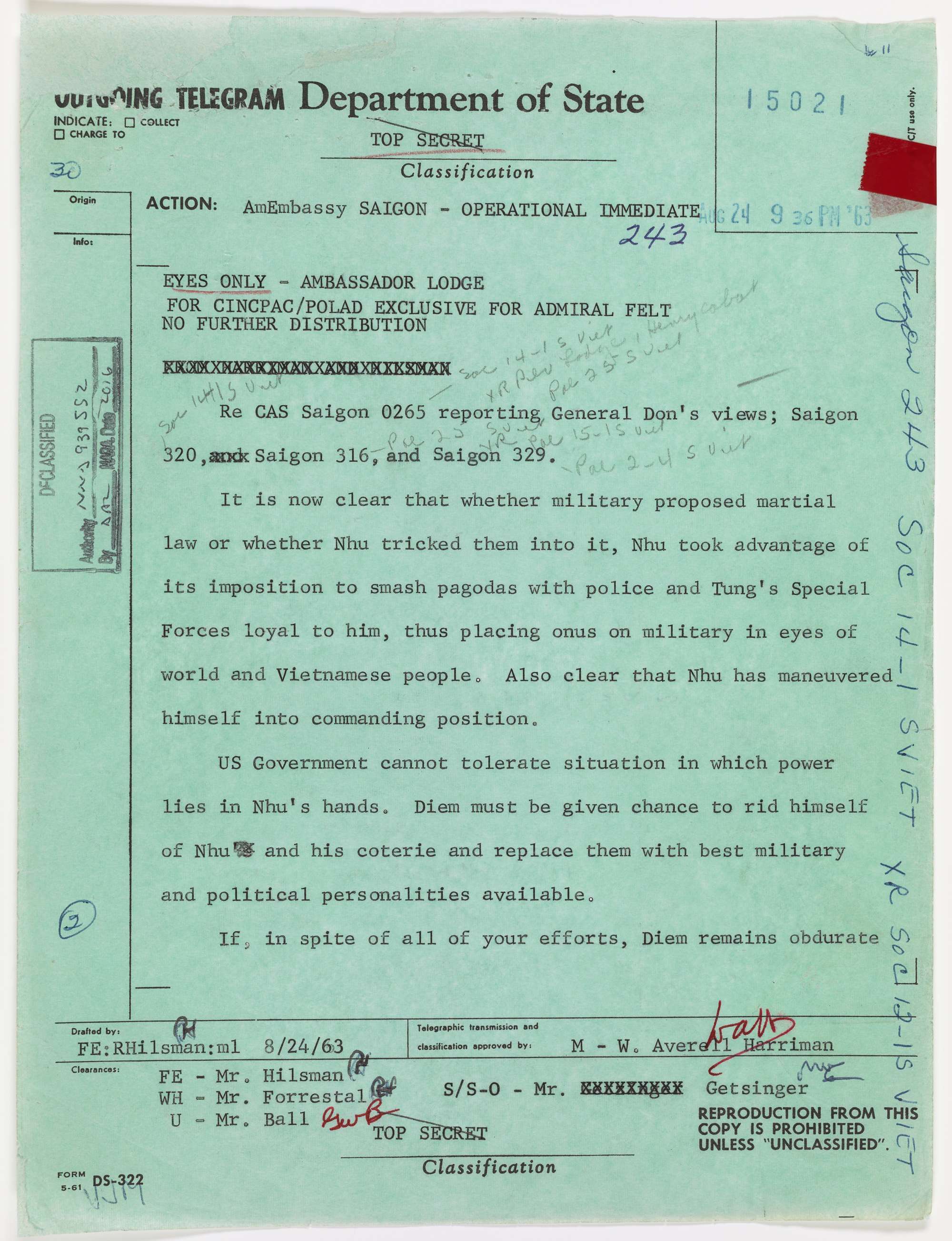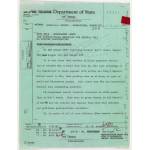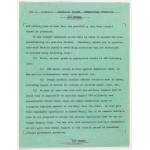State Saigon cable 243
8/24/1963
Add to Favorites:
Add all page(s) of this document to activity:

Add only page 1 to activity:
Add only page 2 to activity:
Add only page 3 to activity:
A flood of American resources from the Kennedy administration in the early 1960s appeared to buoy South Vietnam against the North Vietnam forces. But in the spring of 1963, photographs of protests against the U.S.-supported Diem regime in South Vietnam stunned observers around the world. Newspaper images of monks burning themselves to protest discriminatory treatment by the Diem regime caused international outcry.
President Ngo Dinh Diem promised to enact reforms but was undermined by his brother and chief advisor, Ngo Dinh Nhu. Protests continued and escalated when Nhu responded with violent raids on Buddhist pagodas. Violence and unrest in Saigon made Washington tense. Diem ignored the Kennedy administration’s increasingly adamant calls for reform.
Soon after the deadly midnight attacks on Buddhist pagodas, Ambassador Henry Cabot Lodge received this cable. It authorized him to offer a group of generals plotting to overthrow President Diem "direct support in any interim period of breakdown." The cable gave the generals the green light for their planned coup d’état. Kennedy was ambivalent about abandoning Diem, and knew it would anger members of Congress, but said they would "be madder if Vietnam goes down the drain."
President Ngo Dinh Diem promised to enact reforms but was undermined by his brother and chief advisor, Ngo Dinh Nhu. Protests continued and escalated when Nhu responded with violent raids on Buddhist pagodas. Violence and unrest in Saigon made Washington tense. Diem ignored the Kennedy administration’s increasingly adamant calls for reform.
Soon after the deadly midnight attacks on Buddhist pagodas, Ambassador Henry Cabot Lodge received this cable. It authorized him to offer a group of generals plotting to overthrow President Diem "direct support in any interim period of breakdown." The cable gave the generals the green light for their planned coup d’état. Kennedy was ambivalent about abandoning Diem, and knew it would anger members of Congress, but said they would "be madder if Vietnam goes down the drain."
This primary source comes from the General Records of the Department of State.
Full Citation: Hillsman Cable State-Saigon Cable 243; 8/24/1963; SOC 14-1 S Viet, 8/1/63; Central Foreign Policy Files, 1963; General Records of the Department of State, Record Group 59; National Archives at College Park, College Park, MD. [Online Version, https://www.docsteach.org/documents/document/state-saigon-cable-243, April 26, 2024]Rights: Public Domain, Free of Known Copyright Restrictions. Learn more on our privacy and legal page.






